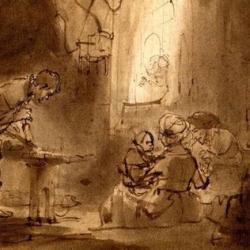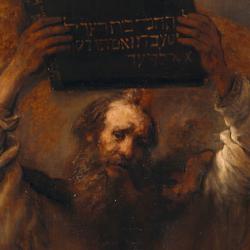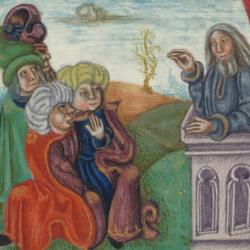The exodus is the paradigm of salvation in the New Testament. Like Moses, Jesus escapes from murderous Herod, saves us from our enemies, and on the Mount of Transfiguration He discusses His coming “exodus” with Moses and Elijah.
Jesus dies as the Passover Lamb, baptism is our exodus, and we follow the cloud of the Spirit through the wilderness, dependent on the food and drink that Jesus provides. Jesus is a greater Moses who inaugurates a ministry of righteousness rather than a ministry of condemnation.
These exodus analogies teach us about sin. Disobedient words, acts, and thoughts are sins; Scripture says we all sin and fall short of the glory of God. Just as often, though, the Bible personifies sin as a tyrant, a power, a Pharaoh. Sin “enters” the world. Sin “spreads.” Sin increases. Before Jesus, Sin “reigned in death,” and Sin was master. Sin is an environment we can live “in.” We are responsible for our sins; yet Scripture also teaches that we have become oppressed victims of the cruel master that destroys us.
When the Hebrews suffered affliction with bitter labor in Egypt, they sighed and cried out, and their cry for help because of their bondage ascended to God. So to, as we come to confession, we not only seek forgiveness for sinful actions and words; we also long for escape. And as we sigh and cry out in our bondage, the good news is that Jesus leads us out with a mighty hand and an outstretched arm.










